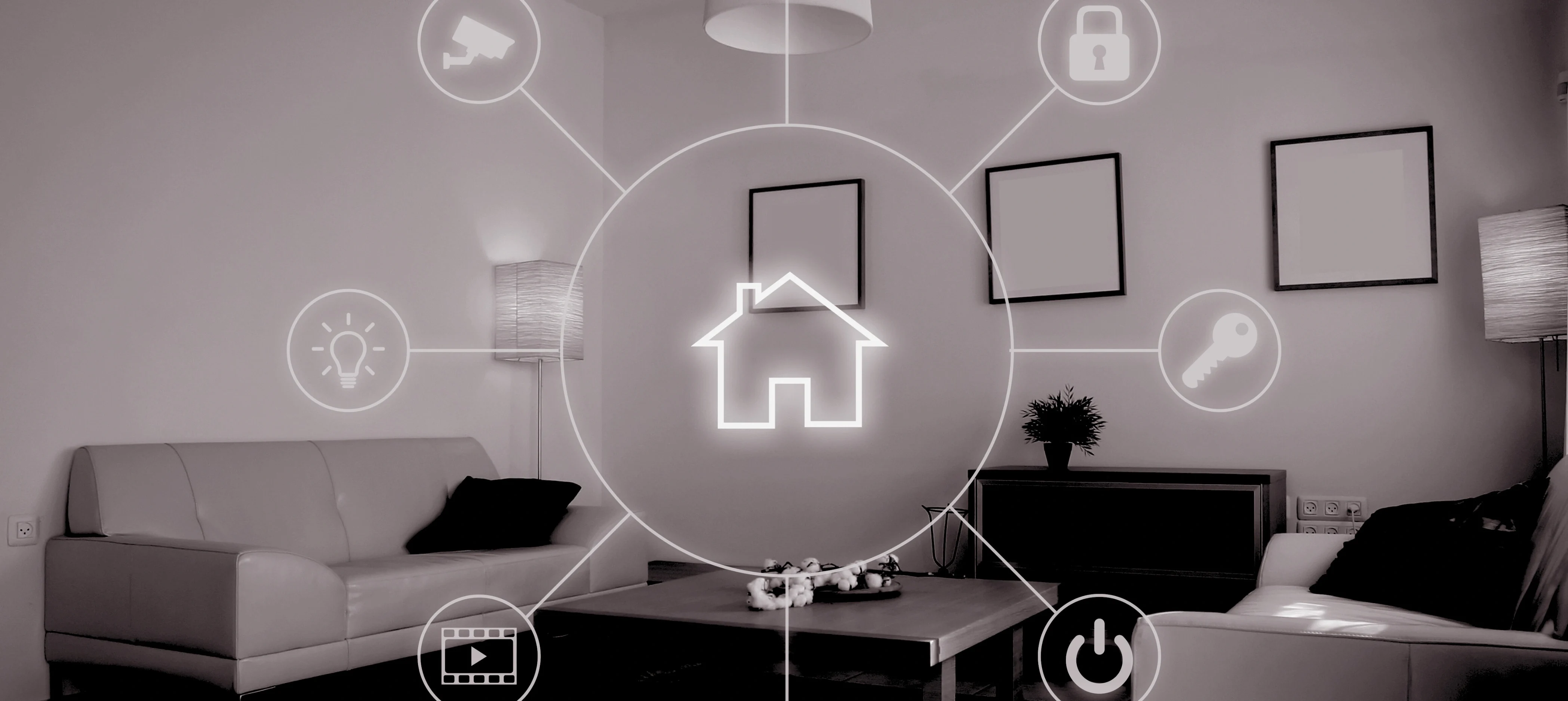AutomateWithAIoT
LoginBlog Details

2024-06-12
Automation
PropTech
Sustainability
Author: Alex Carter
How AI-Powered Smart Home Automation is Transforming the Property Value Landscape
AI-powered home automation is more than just a convenience in today's technologically advanced world; it's a calculated investment that raises the real estate market's value. Smart automation technologies have become a potent differentiator as companies in the home construction and real estate sectors search for creative methods to draw clients and boost asset value. This blog examines how AI-powered smart home automation is changing the way real estate is valued, making homes more appealing to buyers, and creating new business opportunities.
The New Real Estate Standard: Smart Home Automation
Hardwood floors and granite countertops were once the best selling factors, but those days are long gone. Homebuyers of today look for properties with AI-enabled technologies like energy management programs, voice-activated assistants, security systems, smart lighting, and thermostats. These solutions greatly increase a property's perceived and actual worth in addition to improving comfort and efficiency. Agents and developers in the real estate industry that understand this change can command greater prices and quicker sales cycles.
AI as a Strategy for Long-Term Investments
From a commercial standpoint, incorporating AI into homes is about future-proofing investments rather than just technology. Homes with learning algorithms that adjust based on user behavior are viewed as more progressive and sustainable. Higher returns on investment, lower vacancy rates, and more appeal to all demographics—especially tech-savvy millennials and Gen Z buyers—are the results for real estate developers and investors.
Cost Savings and Energy Efficiency: A Business Advantage
Intelligent energy use is made possible by AI-driven automation, which modifies appliances, heating, and lighting according to usage trends. This results in cheaper utility costs for residences. It makes a strong case for companies by reducing operating expenses and environmental effects. Businesses can attract ESG-conscious investors and buyers by emphasizing eco-friendliness and efficiency when building or retrofitting homes using these technologies.
Predictive Maintenance and Security: Boosting Confidence
AI-powered smart security systems are able to identify faces, spot odd activity, and even anticipate security threats before they materialize. Predictive maintenance programs also notify users when systems or appliances require repair, reducing malfunctions and prolonging equipment life. This lowers post-sale liabilities and increases client satisfaction for real estate and property management companies.
Innovative Revenue Streams and Business Models
Service-based business models are made possible by smart houses. For example, businesses can provide subscription services for data analytics, device repair, and home monitoring. Automation experts and integrators can create SaaS models that guarantee recurrent revenue by adding value long after a house is sold.
In Summary: A Business Necessity
Smart home automation driven by AI is becoming a necessity for businesses, not a luxury. It raises the value of real estate, lowers operating expenses, and opens up new revenue streams. In a market that is changing quickly, real estate stakeholders who embrace this change will find themselves ahead of the curve.